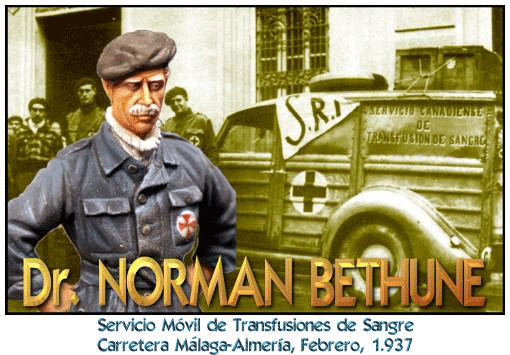
A professor at Harvard Medical School for almost 40 years, the physiologist Walter B. Cannon (1871-1945) embodied the (essentially religious) commitment of a man of science working in the struggle for freedom, democracy and international solidarity, in a time that was marked by totalitarianism and war on a global scale.
During the Spanish Civil War, Cannon was head of the Medical Bureau to Aid Spanish Democracy, a North American humanitarian organisation which provided support to the doctors and nurses of the Lincoln Brigade. Later on, after the war was over, he helped Spanish scientists who had sought refuge in France by promoting diplomatic actions, on behalf of the USA, with the aim of freeing the refugees and taking them to America.
After he died in September 1945, by way of homage, the small hospital created by and for the Spanish community residing in Toulouse adopted the dual name of "Hospital Varsovia -Walter B. Cannon Memorial". Cannon was a leading member of the Unitarian Service Committee (USC) and of the Joint Anti-Fascist Refugee Committee (JAFRC), both North American philanthropic organisations which, at the end of the Second World War, collected money and all kinds of materials to help the Spanish community exiled in France. Following the consolidation of Franco's military regime, these people had been left without any chance of returning to their country. Shortly afterwards, both organisations (and particularly the latter) suffered from the consequences of the Cold War, and specifically from the witch-hunt carried out by the notorious Committee on Un-American Activities.
Video screening: Spain in Exile (original version in Spanish, 1946; 20 min). Produced by Paul Falkenberg and directed by Guillermo Zúñiga for the Unitarian Service Committee and the Joint Anti-Fascist Refugee Committee.
Cycle: The Humnanitarian ETHOS and war: reasons and passions, ideologies and beliefs